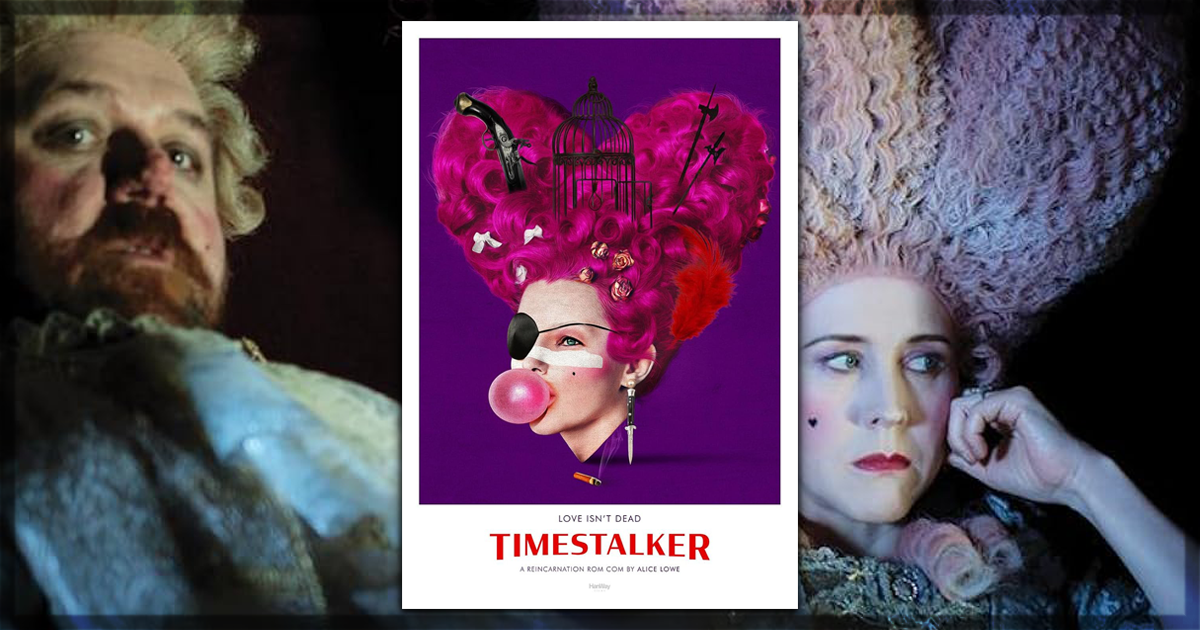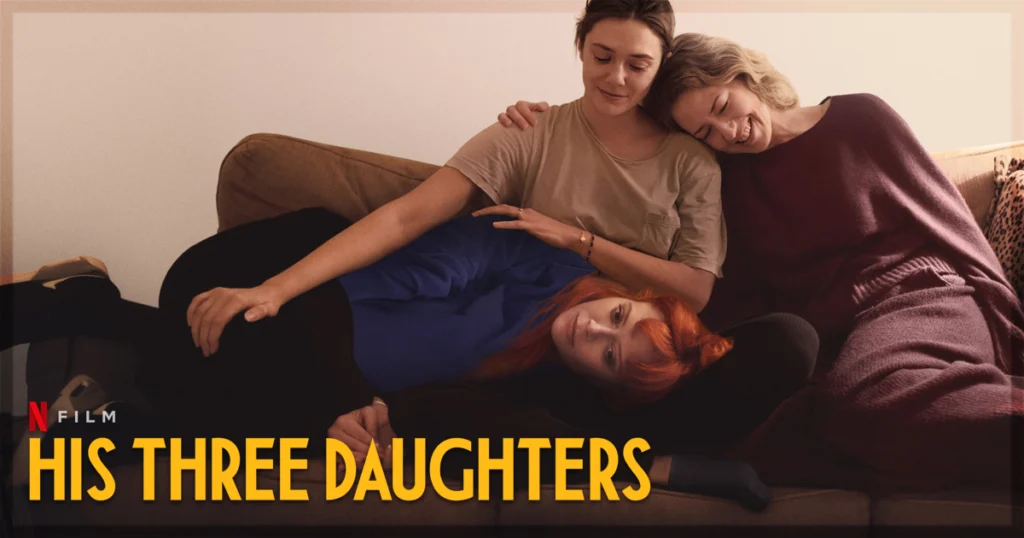Timestalker, the sophomore directorial feature of writer-director Alice Lowe, takes the Shakespearean adage “The course of true love never did run smooth” to its most extreme and fantastical conclusion. Lowe plays Agnes, a woman who lives an ordinary life with only a nagging, unplaceable inkling that something is missing. More accurately, she lives several lives across four centuries. The answer to her unknown question emerges in the face of Alex (Aneurin Barnard), with whom she is immediately, irrevocably smitten. But before the star-crossed lovers (to borrow another Shakespearian turn) can exchange more than a few words – if that – he ends up in mortal danger, and she saves his life. The only problem is that she invariably loses her life – often by losing her head – in the process. And then, in another time, her life begins anew.
Throughout Timestalker, a cast of recurring characters continually emerge in Agnes’ life, including Scipio (Jacob Anderson), Meg (Tanya Reynolds), and George (Nick Frost). Can Agnes figure out the patterns and break the cycle, or is she doomed to the life of a perennially hopeless – and headless – romantic?
There are surprises aplenty in store for both Agnes and viewers, some of which delightfully subvert expectations of the plot’s direction and conventional romantic tropes. The amount of time Agnes, and therefore the viewer, spends in each era varies – to great comedic effect. Watching the tension build throughout an extended sequence, wondering when the fatal hour will arrive, is immense fun – as is seeing her head roll less than a minute after a new time period starts.
Lowe is a familiar face in British comedy, getting her start on screen in cult classic television shows like Garth Marenghi’s Darkplace and The Mighty Boosh in the early 2000s while appearing in films such as Hot Fuzz, Sightseers, The World’s End, and Paddington – all of which encapsulate different, yet very British, comedic sensibilities. Timestalker, like her debut directorial feature Prevenge, feels drawn from the same lo-fi, low-budget, deliberate 1980s throwback world of Garth Marenghi’s Darkplace, from the pulsing synth score and sound design (credited to Martin Pavey) to the distinctly retro color palette employed throughout every era. Due to this, and the climactic nature of actions within, the 1980s-set sequences feel like the film’s spiritual home. The shade of pinky-orangy-red used to signify Anges’ and Alex’s love is particularly striking and original – like their continual meetings across time, it is no accident.
Felicity Hickson’s meticulous, marvelous production design ensures that, like much classic British film and television, different historical times are evoked without great resources but with great care to accuracy and period detail. No costumes look cheap. The great Georgian wigs Agnes wears are highlights, each one larger and more extravagant than the last. One pitfall of period films is the hair design; “modern” styles and cuts are often employed by creative teams out of fear of alienating viewers with the weird and wonderful stylings people considered beautiful or fashionable in decades or centuries past. In the same vein, head coverings are often done away with. This has been a constant throughout cinematic history: for modern examples, look to Bridgerton or Greta Gerwig’s 2019 version of Little Women, and for earlier examples note Marlene Dietrich’s perfect 1930s curls when playing 18th-century Russian empress Catherine the Great in The Scarlet Empress. Timestalker leans into the joy of this weird and wonderful, knowing that being relatable comes from Agnes’ timeless ennui, confusion, and heartache. Wig or no, those human experiences remain the same – as do the basest human urges. Much comic mileage comes from pampered pets interacting with a wooden dildo.
The casting mixes faces from the old guard of British comedy with younger talent. Barnard and Anderson – the latter fresh off his massive success in the AMC/BBC drama Interview With the Vampire – fit into Lowe’s world comfortably. Barnard knows how to play a floppy-haired heartthrob with the right mix of self-deprecation, sincerity, and subversion, altering this ratio in each iteration based on his role in the wider world beyond Agnes’ love. Anderson is at ease in each individual hyper-reality, bringing an arch theatricality to the proceedings. Few actors modulate their personas as easily and completely as he does while understanding such transformations can be maximalist as well as naturalistic, paying off in spades as the film reaches its chaotic conclusion.
Reynolds is a sweet grounding presence throughout, with Meg offering Agnes good – if often unwanted – advice to her unique predicament. Kate Dickie returns from Prevenge to deliver some acidic observations. Frost, who also appeared in Hot Fuzz and The World’s End, attacks his various characters with gusto. The standout George is appropriately the Georgian one – Agnes’ boorish husband in this reality, who bangs on about honor and titles without the slightest refinement. With Alex at his most romantic as a dashing highwayman, the showdown that results could almost become its own drama.
Timestalker is tremendous fun, and its separate artistic elements combined create a film that feels both retro and refreshed. While a must-see for fans of Lowe, her co-stars, and the now-classic work of her former collaborators, its off-kilter originality will find far wider appeal.
Timestalker recently screened at the Edinburgh International Film Festival.
You might also like…
‘His Three Daughters’ Review: A Powerful yet Bittersweet Performance Showcase of Family, Loss, and Healing


